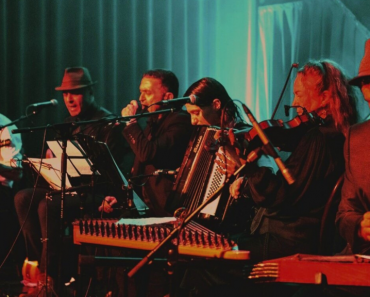It has been said many times before – Greek organisations here have not been very good at documenting their history. Whether it be listing the various members of the boards, the minutes of meetings, archiving reports of events, taking photos, and generally keeping records.
So too can be said of the history and origins of ‘Greek Week’.
Having been involved in the first Greek Week back in 1976, having organised many of the activities, I would like to set the record straight as to the origins of Greek Week’. This article has been written and based on my recollections of the events leading up to the formation of the Greek Week Committee and also from an article written by Takis Efstratiades and published in Neos Kosmos on 8 March 2012.
The idea for a Greek Week came from Efstratiades who approached the then Greek Consul General Stelios Valsamas-Rallis who liked the idea, then asked the three publishers of the Greek Newspapers, Takis Gogos, Costas Alexiades and of course Takis Efstratiades to arrange and form a committee to run the festival.
The first Greek Week Festival Committee comprised of Thiseas Marmaras as President, two Vice Presidents in Andreas Skrinis and Takis Karydis, Takis Efstratiades as Secretary, Treasurer Merkouris Kavalieros, Georgios Agrotis, Stelios Menis, Kyriakos Amanatides, Takis Gogos, Dimitris Xidakis, Dimitris Hasisadas, Eve Dalaveri and Nikos Skiadopoulos.

The official documentation for the establishment of the Greek Week Festival was signed by all of the founding committee members on 13 March 1975.
The first official function of the first Greek Week in 1976 was a church service on 29 February 1976. In the days following, 22 other activities were presented amongst them, five art/book exhibitions and a musical competition.
The Lord Mayor of Melbourne at the time was quoted as saying that the first Greek Week had more events than Moomba had in its first year of operation.
Two of the most popular and successful events were the exhibition of Australian artists who had worked in Greece at the South Yarra Library, and the exhibition by Tony Raftis (Raftopoulos).
The whole festival was presented with an administrative budget of $1,500 and sponsorship of a few tickets from Olympic Airways for prizes.
To quote Efstratiades in the Neos Kosmos article, “The organisation, the setting up, the presentation of all the events as well as the clearing up, fell on the shoulders of two heroines Christina Despoteris and Eve Dalaveris who devoted all their strength to the course. Without them, I doubt that there would have been a Greek Week.”
Not withstanding the difficulties of organising 23 activities in such a short period of time, the overall consensus was that it was a great success with many activities being sold out. We had a lot of children participating in the musical instruments’ competition, we had sold-out venues, with many more Greeks and others attending the many exhibitions, and book presentations.
The following year, 1977, saw a change in the committee with Sakis Zafiropoulos taking on the role as President. Sakis had been President of the Festival of All Nations since 1973, the precursor to the Multicultural Arts Festival. The Greek Week office was then transferred to the Ministry of Immigration and Ethnic Affairs offices in Victoria Parade East Melbourne where the Italian Festival was housed as well as other similar organisations.
During the next ten years or so, we see the establishment and presentation of two major annual events, the Greek Song Festival and the Greek Film Festival, both under the auspices of the Greek Week Festival which, had been in the meantime, changed to just the Greek Festival.
Once I joined the Ministry of Immigration and Ethnic Affairs in 1980, which later became the Ethnic Affairs Commission.
I no longer organised any events directly for the festival but organised for a young Jeff Kennett, as minister to attend the events. I think we attended four events in one week across Melbourne. After the change of government in 1982, both Jack Ginifer and Peter Spyker continued supporting the Greek Festival.
One other major coup for the festival at the time was the closure of Lonsdale Street for the major concert which was to be given by Demis Roussos. All the shops in Lonsdale Street, were decked out in blue and white. Tens of thousands of people attended.

In the mid-1980s, the festival took a short break, at which time the Antipodes Festival was created a couple of years later. It was housed at the Greek Community Centre in Lonsdale Street. At the time Savvas Papasavvas was President of the Greek Community and was very supportive of Antipodes.
Over the years we have seen Antipodes grow into a very successful event with many additional performers, stalls, activities and presentations all centered around Lonsdale Street. There is also the Greek Film Festival presented annually later in the year.
Congratulations to all at the Greek Community Centre for preserving and promoting Greek Culture and Traditions through Antipodes and giving the opportunity for young Greeks to perform, the opportunity for Greek organisations to promote themselves, to not only the Greeks, but the broader Australian community, for stall holders to sell their wares, and for audiences to be able to watch popular Greek performers for free.
Unfortunately, not a lot of records have been kept about the history of Greek Week.
Social media was not around at the time, but we do have a few people like myself who have kept some cuttings and copies of programs and have been able to document things chronologically. There is also the Neos Kosmos archive that can be sourced for further information.
And if anyone is wondering, back in the 70s, I was Christine Pangalos.
Wishing everyone a great Antipodes Festival.

Christina Despoteris OAM worked for the State Government for many years in various roles across eight different port folios and has been very active in the Greek Community for the last 50 years or so.






